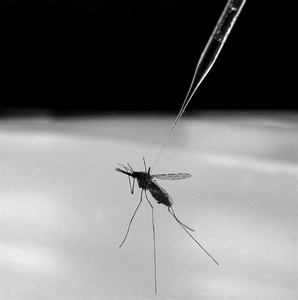Health
Partners commit to reduce cholera deaths by 90% by 2030
An ambitious new strategy to reduce deaths from cholera by 90% by 2030 will be launched tomorrow by the Global Task Force on Cholera Control (GTFCC), a diverse network of more than 50 UN and international agencies, academic institutions, and NGOs that supports countries affected by the disease.
- Read more
- 372 reads
Cancers Associated with Overweight and Obesity Make up 40 percent of Cancers Diagnosed in the United States

13 Cancers are associated with overweight and obesity
- Read more
- 395 reads
Counselling and dieting among new UN health agency guidelines on child obesity

Children playing at the multi-ethnic Krupskaya School in the town of Nookat, Osh oblast, Kyrgyzstan.
- Read more
- 430 reads
NIH-funded study to focus on newborns affected by opioids
IThe National Institutes of Health is funding a new study to evaluate treatment options for newborns with opioid withdrawal syndrome, a condition caused by exposure to opioids during pregnancy. Currently, health care providers in the United States lack standard, evidence-based treatments for neonatal opioid withdrawal syndrome, despite states reporting more cases in recent years. The study, called Advancing Clinical Trials in Neonatal Opioid Withdrawal Syndrome (ACT NOW), aims to inform clinical care of these infants.
- Read more
- 343 reads
WHO scales up response to plague in Madagascar
WHO is rapidly scaling up its response to an outbreak of plague in Madagascar that has spread to the capital and port towns, infecting more than 100 people in just a few weeks.
- Read more
- 365 reads
CDC Is Deactivating the Emergency Operations Center for the Zika Response
CDC is deactivating its emergency response for Zika virus (Zika) to transition efforts to normal program operations on September 29, 2017. On January 22, 2016, CDC activated its Emergency Operations Center (EOC) in response to the devastating effects of Zika virus infection during pregnancy.
- Read more
- 433 reads
WHO recommends large-scale deworming to improve children’s health and nutrition
Periodic deworming programmes with a single-tablet treatment can drastically reduce the suffering of those infected with parasitic intestinal worms and protect the 1.5 billion people currently estimated to be at risk.
- Read more
- 355 reads
Disease resistance successfully spread from modified to wild mosquitoes

Anopheles gambiae mosquito being injected with hemolymph for malaria research study.
- Read more
- 374 reads
New study shows Tdap vaccination during pregnancy can prevent whooping cough in babies
A new CDC study on September 28, published in Clinical Infectious Diseases reported that vaccination with whooping cough vaccine, Tdap, during the third trimester of pregnancy prevented more than three out of four (78 percent) cases of whooping cough (also known as pertussis) in babies younger than two months. However, only 49 percent of pregnant women who delivered between fall 2015 and spring 2016 received the vaccine. CDC recommends women get Tdap during each pregnancy to provide critical short-term protection to babies when they are most at risk for this life-threatening illness.
- Read more
- 437 reads
UN health agency recommends large-scale deworming to improve children’s health

A child in Honduras being dewormed.
- Read more
- 395 reads
Human Rights
Fostering a More Humane World: The 28th Eurasian Economic Summi

Conscience, Hope, and Action: Keys to Global Peace and Sustainability

Ringing FOWPAL’s Peace Bell for the World:Nobel Peace Prize Laureates’ Visions and Actions

Protecting the World’s Cultural Diversity for a Sustainable Future

Puppet Show I International Friendship Day 2020

